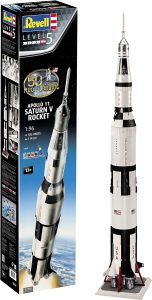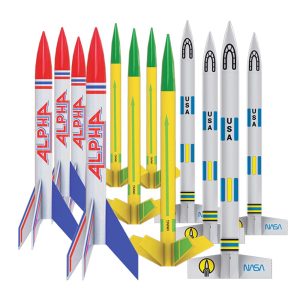Imagine blasting off into the world of model rockets, where science meets adventure and creativity knows no bounds. As a Cub Scout, you're about to embark on an thrilling journey that combines fun, learning, and skill-building. Get ready to design, build, and launch your very own model rocket, and discover the wonders of aerospace engineering along the way!
Quick Links to Useful Sections
What Are Model Rockets?
Model rockets are scaled-down versions of real rockets, designed to mimic the look and functionality of their larger counterparts. They're typically made of lightweight materials, such as balsa wood, plastic, or paper, and are powered by small motors that produce a controlled thrust. Model rockets can reach incredible heights, often exceeding 1,000 feet, and can be equipped with parachutes or other recovery systems to ensure a safe landing.
As a Cub Scout, you'll learn about the science behind model rockets, including the principles of aerodynamics, propulsion, and gravity. You'll also develop essential skills like problem-solving, critical thinking, and teamwork, all while having an absolute blast.
The Benefits of Model Rocketry
Model rocketry offers a wide range of benefits for Cub Scouts, from promoting STEM education to fostering creativity and self-confidence.
- STEM Education: Model rocketry is an excellent way to introduce Cub Scouts to the wonders of science, technology, engineering, and mathematics. By designing, building, and launching model rockets, you'll learn about complex concepts like trajectory, velocity, and gravity.
- Creativity and Innovation: Model rocketry encourages creativity and innovation, as you'll need to think outside the box to design and build your rocket. You'll develop problem-solving skills, learn to work with different materials, and experiment with new ideas.
- Teamwork and Communication: Building and launching model rockets often requires collaboration with other Cub Scouts. You'll learn to work together, communicate effectively, and rely on each other's strengths to achieve a common goal.
- Self-Confidence and Perseverance: Launching a model rocket can be a thrilling experience, but it also requires perseverance and self-confidence. You'll learn to overcome obstacles, troubleshoot issues, and celebrate your successes.
Getting Started with Model Rockets
As a Cub Scout, getting started with model rockets is easier than you think. Here are some steps to help you get started:
Looking For The Best Model Rocket Kits? You'll Love These:
- Choose a Kit: Select a model rocket kit that's suitable for your skill level and interests. You can choose from a variety of kits, ranging from simple to complex, and featuring different designs and features.
- Follow the Instructions: Read and follow the instructions carefully, making sure to assemble the rocket correctly and safely. Don't be afraid to ask for help if you need it!
- Prepare for Launch: Before launching your rocket, make sure you have a safe and suitable location. Check the weather, ensure the area is clear of obstacles, and follow all safety guidelines.
- Launch and Recover: Launch your rocket, track its flight, and recover it safely. Analyze the flight data, identify areas for improvement, and make adjustments for your next launch.
Model Rocket Safety
Safety is paramount when it comes to model rocketry. Here are some essential safety guidelines to follow:
- Always Follow the Instructions: Read and follow the manufacturer's instructions, as well as any guidelines provided by your Cub Scout leader or mentor.
- Wear Protective Gear: Wear safety goggles, a hat, and closed-toe shoes when launching or recovering model rockets.
- Choose a Safe Location: Select a launch site that's clear of obstacles, people, and animals. Avoid launching near power lines, airports, or other hazardous areas.
- Be Aware of the Weather: Check the weather forecast before launching, and avoid flying during strong winds, thunderstorms, or other hazardous conditions.
Resources and community Support
As a Cub Scout, you're not alone in your model rocketry journey. Here are some resources and community support options to help you along the way:
- Cub Scout Leaders and Mentors: Your Cub Scout leaders and mentors are experienced and knowledgeable about model rocketry. Don't hesitate to ask for guidance, advice, or support.
- Model Rocketry Clubs and Organizations: Join local model rocketry clubs or organizations, such as the National Association of Rocketry (NAR), to connect with other enthusiasts, learn from experts, and gain access to resources and events.
- Online Forums and Communities: Participate in online forums and communities, such as Reddit's r/modelrockets, to connect with other model rocketeers, share knowledge, and learn from others.
- Model Rocketry Events and Competitions: Attend model rocketry events and competitions, such as the Cub Scout Model Rocketry Derby, to showcase your skills, learn from others, and have fun.
Frequently Asked Questions
Here are some frequently asked questions about model rocketry and Cub Scouts:
1. What's the best model rocket kit for a beginner?
The best model rocket kit for a beginner depends on your skill level, interests, and budget. Look for kits that are specifically designed for beginners, with easy-to-follow instructions and durable components.
2. How high can model rockets fly?
Model rockets can fly incredibly high, often exceeding 1,000 feet. The exact altitude depends on the rocket's design, motor power, and weather conditions.
3. Are model rockets expensive?
Model rockets can range from affordable to expensive, depending on the kit, materials, and features. As a Cub Scout, you can start with beginner-friendly kits and gradually move to more advanced models as you gain experience and confidence.
4. Can I customize my model rocket?
Absolutely! Model rocketry encourages creativity and innovation. You can customize your rocket with different paints, decals, or components to make it truly unique.
5. How do I join a model rocketry club or organization?
Research local model rocketry clubs or organizations, such as the National Association of Rocketry (NAR), and reach out to them for membership information. Many clubs offer discounts or special benefits for Cub Scouts.
Looking For The Best Model Rocket Kits? You'll Love These:
Useful Interruption: Dive deeper into the world of Model Rockets with our most popular sections. If there is anything you think is missing or anything you would love for us to write about, just give us a shout.
- Getting Started & Basics With Model Rockets
- Model Rocket Design, Build & Customization
- Model Rocket Propulsion & Engine Technology
- Model Rocket Launch Techniques & Recovery
- Model Rocket Advanced Rocketry & Innovations
- Model Rocket DIY and Customization
- Model Rocket Equipment Reviews & Digital Tools
- Community, Competitions & Education
- Model Rocket Troubleshooting & FAQs
- Model Rocket Bonus/Seasonal & Niche Topics
A group of model rocket enthusiasts gathered at a field for their weekly launch event. Among them was Dave, a seasoned builder known for pushing the limits of hobby rocketry. This time, he had outdone himself.
“Ladies and gentlemen,” Dave announced, dramatically pulling a cloth off his latest creation, “I present to you: The Kraken!”
The crowd gasped. This wasn’t just a model rocket, it was a monster. The thing stood 8 feet tall, had six clustered engines, and was covered in enough duct tape to qualify as a classified aerospace project.
“Dave,” muttered Steve, the cautious safety officer, “Have you, uh… done the math on this?”
“Math?” Dave scoffed. “I built it in my garage at 3 a.m. with parts from eBay. This is an art piece, Steve.”
The countdown began.
5…
4…
3…
2…
1…
The engines ignited with a BOOM, and The Kraken shot up… kind of. It immediately did a violent barrel roll, narrowly missing the spectators before skyrocketing at an angle that could only be described as “legally questionable.”
The crowd collectively ducked as The Kraken flew straight over the adjacent cornfield, where Old Man Jenkins, the grumpiest farmer in town, was minding his business.
KABOOM!
The rocket disappeared behind the barn. A moment later, a flaming piece of Estes igniter wire landed at Steve’s feet. The silence was deafening.
And then, an unmistakable sound echoed across the field.
Jenkins’ shotgun being cocked.
“DAVE!!!” Steve shouted. “RUN.”
And that was the day Dave invented the first-ever biologically powered rocket booster: pure adrenaline.
To this day, nobody knows where The Kraken landed, but legend has it, it still haunts the skies, terrifying unsuspecting drones and low-flying birds.















